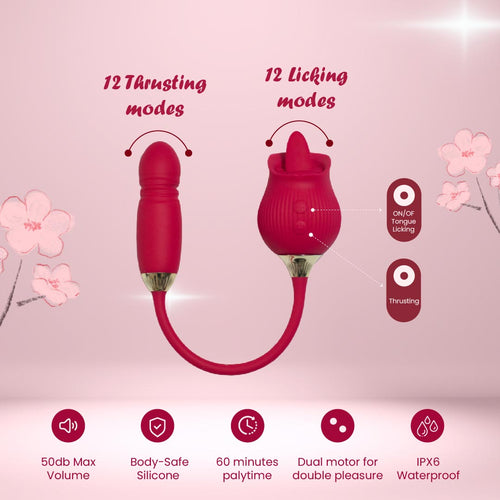
How to Feel More Comfortable Talking About Sex ?
Embracing Intimacy: A Guide to Feeling More Comfortable Talking About Sex
Sex is a natural and important part of human life, yet many people find it challenging to talk about it openly. Whether you're discussing sex with a partner, friend, or healthcare provider, feeling comfortable during these conversations is crucial for maintaining healthy relationships and sexual well-being. This comprehensive guide will help you navigate the sometimes tricky terrain of sexual communication, offering practical advice and strategies to feel more at ease when talking about sex.
Understanding the Importance of Sexual Communication
Open and honest communication about sex is fundamental to building healthy relationships and ensuring sexual satisfaction. When we feel more comfortable talking about sex, we can:
- Express our desires and boundaries clearly
- Address concerns or issues promptly
- Enhance intimacy and connection with our partners
- Make informed decisions about sexual health and safety
- Explore new aspects of our sexuality
By recognizing the value of sexual communication, we take the first step towards overcoming any discomfort or hesitation we may feel.
Overcoming Common Barriers to Sexual Discussions
Several factors can contribute to feeling uncomfortable when talking about sex:
- Cultural or religious taboos
- Lack of comprehensive sex education
- Past negative experiences or trauma
- Fear of judgment or rejection
- Limited vocabulary or knowledge about sexual topics
Identifying the specific barriers that affect you is crucial in addressing and overcoming them. Remember, it's okay to feel nervous or uncertain at first – these feelings are normal and can be worked through with patience and practice.
Building Self-Confidence for Sexual Conversations
Developing self-confidence is key to feeling more comfortable talking about sex. Here are some strategies to boost your confidence:
- Educate yourself: Learn about sexual health, anatomy, and relationships from reliable sources. The more knowledge you have, the more confident you'll feel discussing these topics.
- Practice self-reflection: Spend time understanding your own feelings, desires, and boundaries related to sex.
- Use positive self-talk: Remind yourself that your thoughts and feelings about sex are valid and important.
- Start small: Begin by talking about less intimate topics and gradually work your way up to more personal discussions.
Remember, confidence is built over time, so be patient with yourself as you develop these skills.
Creating a Safe and Open Environment
To feel more comfortable talking about sex, it's essential to create an environment that feels safe and non-judgmental. Whether you're speaking with a partner, friend, or healthcare provider, consider the following:
- Choose a private, quiet location where you won't be interrupted
- Agree on ground rules for the conversation, such as respecting each other's opinions and maintaining confidentiality
- Use "I" statements to express your feelings and avoid blaming or criticizing
- Be open to listening without judgment and encourage the same from others
By establishing a supportive atmosphere, you'll feel more at ease discussing sensitive topics.
Starting the Conversation: Tips and Techniques
Initiating a conversation about sex can be daunting, but these tips can help:
- Choose the right time: Pick a moment when you and the other person are relaxed and not rushed or distracted.
- Use a conversation starter: Begin with a general topic related to sex, such as a recent news article or TV show that addressed sexual themes.
- Be direct but gentle: Express your desire to talk about sex clearly, but in a non-threatening way.
- Ask open-ended questions: Encourage dialogue by asking questions that can't be answered with a simple "yes" or "no."
- Use humor when appropriate: A light-hearted approach can help ease tension and make the conversation more comfortable.
Remember, the goal is to open up a dialogue, not to have a perfect conversation right away.
Discussing Sexual Preferences and Boundaries
Talking about sexual preferences and boundaries is crucial for a satisfying and respectful sexual relationship. Here's how to approach these topics:
- Start with positive feedback: Share what you enjoy about your sexual experiences before discussing areas for improvement.
- Be specific: Clearly communicate your likes, dislikes, and boundaries.
- Use "I" statements: For example, "I feel uncomfortable when..." instead of "You always..."
- Be open to compromise: Remember that sexual preferences may differ, and finding common ground is important.
- Respect boundaries: Acknowledge and honor each other's limits without pressure or judgment.
For couples looking to explore new experiences together, consider browsing Ecstasia's collection of sex toys for women. These products can serve as conversation starters and help you discover new preferences together.
Addressing Sexual Health and Safety
Discussing sexual health and safety is an essential aspect of feeling more comfortable talking about sex. Topics to cover include:
- STI testing and prevention
- Contraception options
- Consent and safe words
- Regular health check-ups
When talking about these topics, be honest about your history and concerns. Remember that prioritizing health and safety is a sign of respect for yourself and your partner(s).
Exploring Sexual Pleasure and Intimacy
Feeling comfortable discussing sexual pleasure and intimacy can greatly enhance your sexual experiences. Consider these points:
- Share fantasies and desires: Start with less intense fantasies and gradually open up about more personal ones.
- Discuss what feels good: Be specific about physical sensations and emotional experiences that you enjoy.
- Explore together: Consider using resources like Ecstasia's vibrator collection to discover new ways of experiencing pleasure together.
- Focus on emotional intimacy: Discuss how sex connects to your emotional bond and relationship goals.
Remember, exploring pleasure is a journey of discovery, and open communication is key to making it enjoyable for all involved.
Navigating Difficult Topics in Sexual Conversations
Sometimes, sexual discussions may involve challenging topics such as:
- Past traumas or negative experiences
- Sexual dysfunction or health issues
- Mismatched libidos or desires
- Infidelity or trust issues
When addressing these sensitive subjects:
- Choose an appropriate time and place
- Use "I" statements to express your feelings without blame
- Listen actively and empathetically
- Consider seeking professional help if needed
Remember, it's okay to take breaks or revisit the conversation later if emotions become overwhelming.
Continuing the Dialogue: Making Sexual Communication a Habit
To truly feel more comfortable talking about sex, make it a regular part of your life:
- Schedule check-ins: Set aside time to discuss your sexual relationship regularly.
- Keep learning: Stay informed about sexual health and relationships through reputable sources.
- Celebrate progress: Acknowledge improvements in your communication skills and comfort level.
- Be patient: Remember that becoming comfortable with sexual communication is a process that takes time.
By consistently practicing open and honest communication about sex, you'll not only feel more comfortable but also enhance your relationships and sexual experiences.
Feeling more comfortable talking about sex is a journey that requires patience, practice, and self-reflection. By following the strategies outlined in this guide, you can develop the confidence and skills needed to discuss sex openly and positively. Remember, everyone's journey is unique, so be kind to yourself as you work towards greater comfort and openness in your sexual communication.
For more resources on sexual wellness and to explore products that can enhance your intimate experiences, visit Ecstasia. Their range of carefully curated products can help you and your partner(s) discover new dimensions of pleasure and intimacy together.












